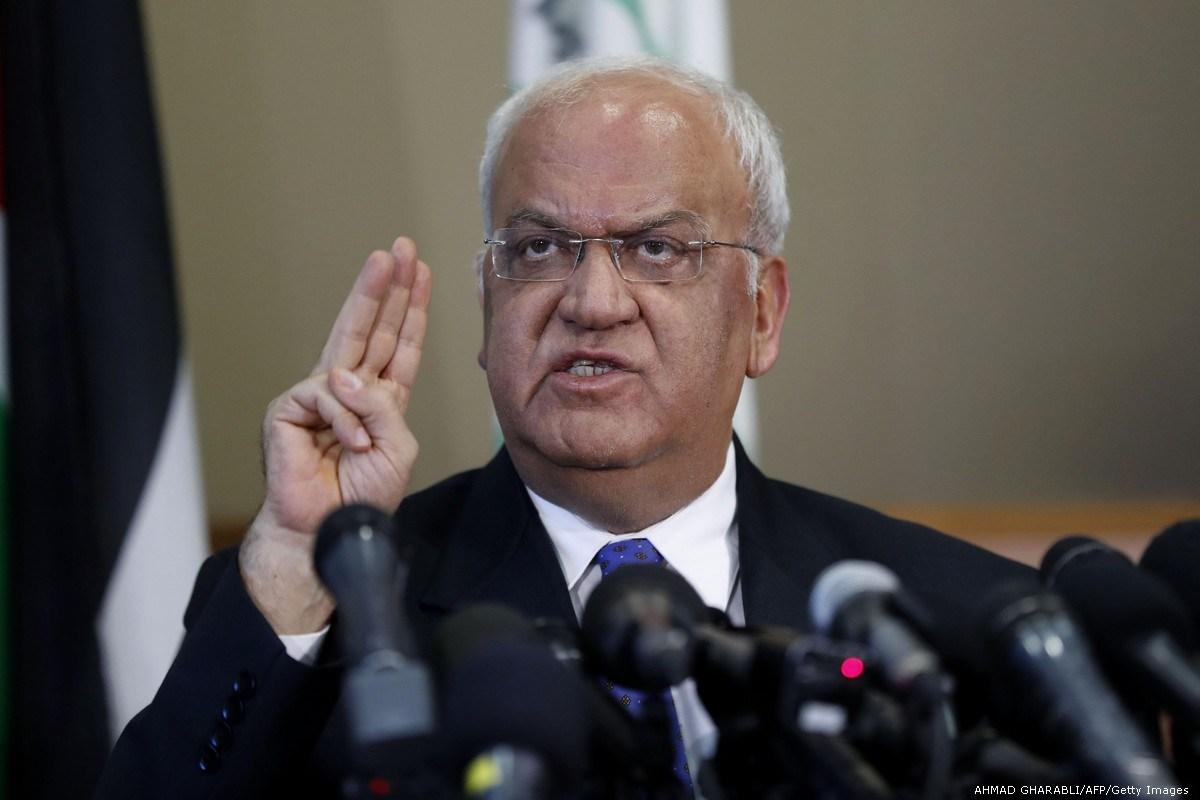Erekat’s response to the Israeli election result ignores reality

Israel’s colonial-settler population has elected Benjamin Netanyahu yet again as Prime Minister and the initial reactions to the result have been summed up in simple slogans that fail to reflect upon the contenders and their politics. Almost all of the contesting political parties based their campaigns on measures to coerce Palestinians into further dispossession
Netanyahu’s Likud is not the exception in this. His rival, former Israel Defence Forces Chief of Staff Benny Gantz, now the leader of Israel Resilience Party, was also seeking the upper hand in determining what violence could be unleashed upon the Palestinians, especially in Gaza.
However, comments that the Israelis have voted for apartheid and occupation because Netanyahu was elected are a simplification. The Israeli election offered voters a choice of varying degrees of colonialism and, yes, apartheid. At the other end of the spectrum, a few parties endorsed the two-state compromise. Ultimately, though, any result would have been detrimental to the people of Palestine. Netanyahu and Gantz vied for the “most ruthless” tag, while parties calling for a two-state imposition based their politics on an untenable hypothesis that is still harming the Palestinian cause.
PLO Secretary General Saeb Erekat, however, remains undeterred in invoking the two-state rhetoric within the context of the Israeli election. Speaking after the initial indications of the result, Erekat declared, “Israelis have voted to preserve the status quo. They have said no to peace and yes to the occupation.” He made reference to the fact that, “Only 14 out of 120 elected members of the Israeli parliament support the two-state solution on the 1967 borders.” The veteran official ignored reality in his response.
The fact remains that even if there was a more visible presence of two-state adherents in the Knesset, Palestinian prospects would not be improved. Netanyahu will press on, together with the US, to force Palestinians into political retreat. The two-state compromise is not an alternative to the barrage of Zionist politics, it is nothing more than a reference prioritising Israel’s existence and security above Palestinian rights and demands.
If Erekat persists in discussing the election results from within the two-state framework, he is also persisting in committing a major disservice to Palestinians. Netanyahu is now being described as the Prime Minister who “killed the two-state solution” but there is more to its demise than the Israeli leader.
While bolstered by Trump, Netanyahu has indeed been more forthright in refusing to commit to the two-state paradigm, a “solution” that is no longer viable because it allows ongoing Zionist colonisation which overrides any hypothetical intention of the international community to establish a Palestinian state on dwindling and fragmented territory. The Israeli Prime Minister may be part of the colonial process but, as the results have shown, he is also dispensable.
No future Israeli prime minister — and it could have been Gantz this time round — will make concessions for any form of decolonisation. Hence, whether or not the two-state paradigm remains relevant in Israeli discourse is beside the point. Looking at Israel’s political trajectory while remaining tethered to obsolete international frameworks enhances the colonial state’s prospects of continuing with its forced displacement of Palestinians. The end result for Israel is not tied to Netanyahu but to a plan which successive prime ministers have stuck to: the establishment of “Greater Israel”. This is something that Erekat prefers to ignore in order to avoid turning to the Palestinian people for an alternative political framework that dispels, once and for all, the two-state “solution” and the opportunities it provides to Israel.
Source: Middle East Monitor

WRITE YOUR COMMENT